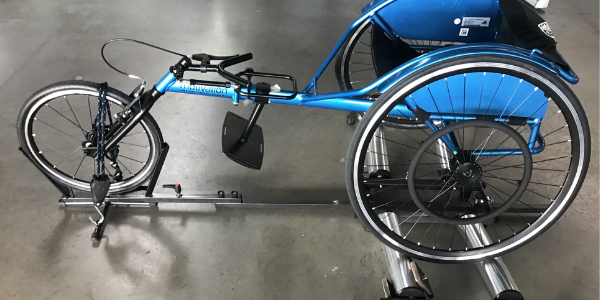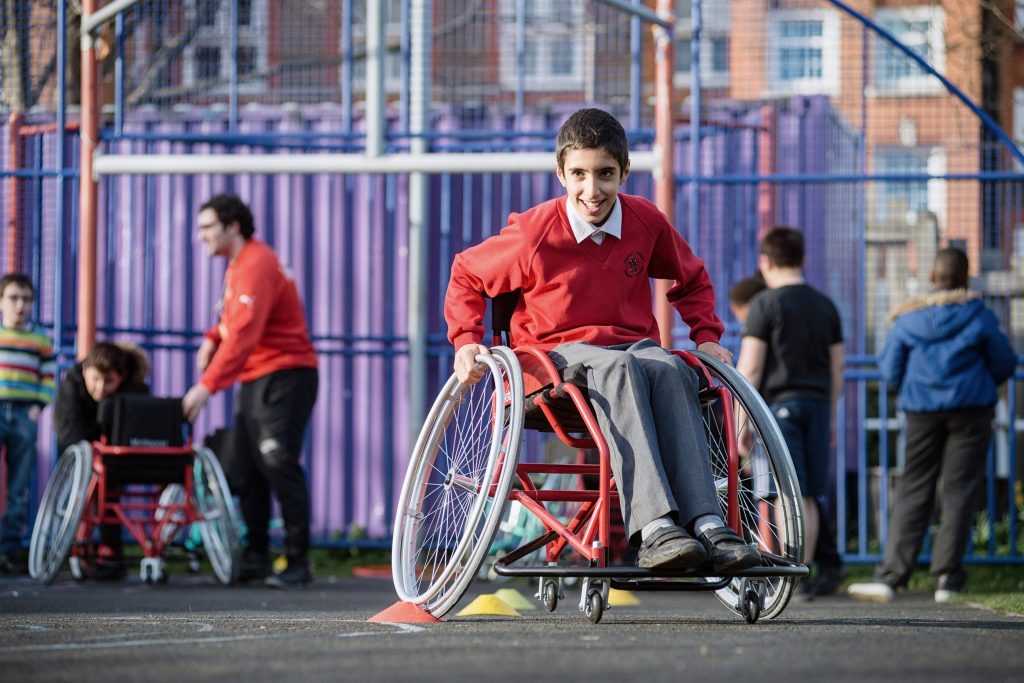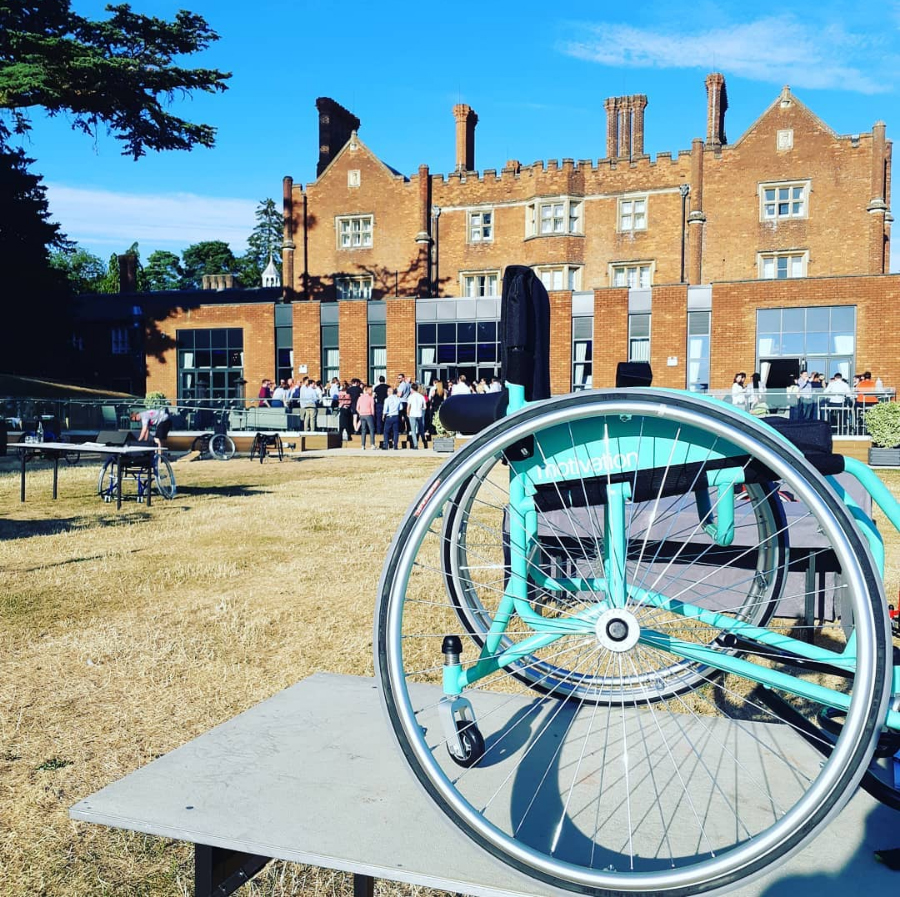Are you going to actively consider Inclusion when you book your next team building event? Are you aware of people in your team who require consideration of their specific needs? Is inclusion something you consider upfront, or as an after thought? By being proactively inclusive in your planning from the start, not only are you doing the right thing, you’re creating an opportunity to truly maximise the opportunity from your inclusive team building event.
Go to our guide to inclusive events
Why an Inclusive Team Building Event?
By making your planning process inclusive from the start, you will create an inclusive team building event that is far superior to any other. The very fact that you’re ‘Building your Team’ implies that the whole team are involved. This ultimately means that everyone’s needs are met and everyone’s input and value can be captured. You’re strengthening relationships in your team after all, and part of that is learning about each other, understanding the value each person brings. If your event is not genuinely inclusive of the whole team, then you’re missing out on valuable input they could share. You’re not getting the full picture.
While this post focusses on the inclusion of people with disabilities, hidden or otherwise, inclusion extends far beyond disability. Have you considered part-time workers, different cultural needs, carers those continuing to self isolate and so on? Don’t miss out on the value that every individual can bring to your business, and how each individual will grow and support your business through your inclusive approach.

Where is everyone? The Statistics
What really got us thinking about inclusion at our team building events was the statistics. Since we started, c. 30,000 people, have taken part in one of our Charity Inspired Team Building Challenges. However, only a handful of these people have identified as being disabled or informed us of extra access needs or support. This doesn’t add up.
After all, the latest government statistics suggest there are approximately 3.1 million disabled people in the UK workforce. This is around 9% of the total workforce, so we should realistically have met around 2.7k people with disabilities. This most certainly hasn’t been our reality. I honestly think we could count the total people identifying with having a disability on one hand!
So, what’s been happening? Do companies assume the team building event won’t be suitable for employees with disabilities? Are people with disabilities uncomfortable stating their needs? Are the Government statistics wrong?!
Regardless of the reasons, we wanted to know if our events were inclusive team building events and to ensure we were actually communicating our inclusivity proactively.
Are our Team Building events already inclusive?
We had assumed prior to the pandemic all out events were inclusive, as that’s our ‘culture’. But what if we were wrong? If asked, how could we demonstrate our inclusion? If we were falling short in any areas, we most certainly wanted to know!
And, if our events were already inclusive – then how and when should we be communicating this?
So, with these questions in our mind, we teamed up with the disability charity Poss’Ability in Brighton. They put our most popular team building event, Charity Bike Build through a vigorous inclusion test for us.

They tested our event for disability inclusion, specifically considering disabilities such as physical disabilities, learning disabilities, visual impairments and auditory impairments.
Working with Poss’Ability, we ran our challenge exactly as we always run it. This allowed them to accurately assess where and how we were already inclusive. It also allowed them to identify and report on if and where changes might be required. Our ultimate goal was to improve the experience for everyone. This really was an amazing few hours for all of us. Our founder Peter, was quoted as saying;
One of the most human experiences I have ever had
It’s honestly an experience we would recommend to anyone in the events industry, building empathy, understanding and value to your event.
But, what did we learn?
Well, the really great news is that our assumption was right! Our Charity Bike Build event was already a very inclusive team building event, simply through its nature and our approach. Our biggest issues, were;
- We didn’t talk about our inclusive approach when we marketed our events or talked to our clients
- We didn’t formally train all team members in our inclusive strategies and approaches, relying on team leaders to ‘know it all’
Needless to say, we have now built inclusion into all team member training, and we pro-actively talk to all clients about their needs. We’re in the process of updating our website too, to ensure anyone browsing will be aware of how we accommodate needs at our events.
We hope that by taking these measures, more people will feel comfortable in speaking up about their needs, leading to more people getting the most out of every single event. This is not only great for individuals but for the teams and business too.
Peter Lindsay, Founder at o3e
Working with Poss’Ability, and taking all of the learnings from our test run, we’ve pulled together a fantastic inclusive events check list. This 12 point checklist is a great starting point, to help anyone running an event, to be as inclusive as possible. This check list is now part of our staff induction and training.
But we don’t want to keep this information to ourselves! Please share far and wide. Sometimes there really is the most-simplest of tweaks required, in a process to make your experience fully inclusive. Ultimately the biggest improvement you can make is awareness, through communication and staff training.
While this check-list is built around our Charity Bike Build event, it can easily be tweaked to support your own event or situation.
Inclusive Team Building – Events Check List
1. Be Proactive: At the point of enquiry and booking, ask if any attendees have any extra access or support needs. By having this knowledge before-hand you can discuss individual requirements.
2. Be prepared to be able to provide an extra person to support someone if needed.
3. Be very clear with communication, for example, do not refer to objects by two different names.
4. Fully describe the entire process to someone with a visual impairment so that they understand what is happening. Allow time for questions.
5. A blind or visually impaired person may need hand guidance, please always seek permission before guiding hands.
6. Be prepared to provide a hearing loop and ensure that these are clearly signposted and that activities happen within it for people who are deaf / hard of hearing.
7. Provide written instructions on tablets with screen readers for those who need it.
8. Make sure all areas are accessible, you may need to adapt your space and your equipment to make this happen. For example. Ensure that there is enough space to move around for a wheelchair user, or that tables and equipment are at the right height for everyone.
9. Use a venue that has accessible access and facilities, including an accessible toilet.
10. Allow for extra time to explain methods, if needed. Perhaps for people using a BSL interpreter.
11. Let potential customers know in advance promotional material or on the website that you can provide extra access support, how your activities are accessible and that you can provide extra time for those that may need it.
12. Ensure Staff are aware of this check list and guidelines.
Click to download this checklist.
What next?
Hopefully now that you have read this list, you’re now nodding your head, with ‘of course!’ ‘this is obvious!’ and thinking about how you can tweak your corner of the world to be more inclusive. Perhaps you’ll share this article with your team, management or network to get others thinking.
And for us at O3e? Well, we intend to make the inclusive style of our events well known and to share our learnings far and wide. We will be updating our website and brochures to ensure our clients are aware and have already undertaken staff awareness training.
And our most Inclusive Event so far?
Well this has to be our Performance Wheelchair Challenge, where teams take on very special disability inclusive team challenges, to earn wheelchair parts and build sports wheelchairs for inclusive sport’s teams! The team challenges have been specifically created to ‘level the playing field’ and build empathy across a range of abilities and disabilities and we can include those people who would prefer to be part of the event remotely. It’s worth watching this in action to see how inclusive an event can truly be!


